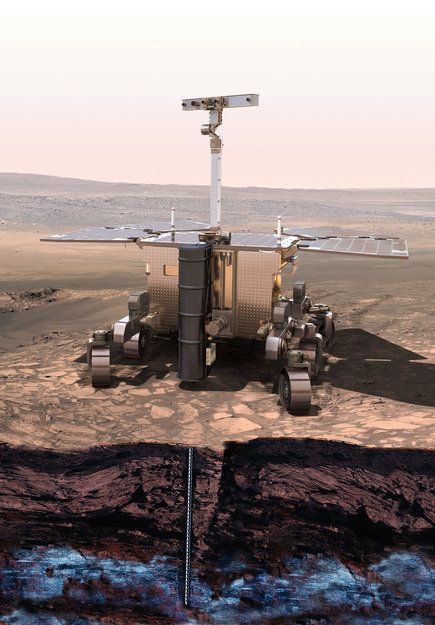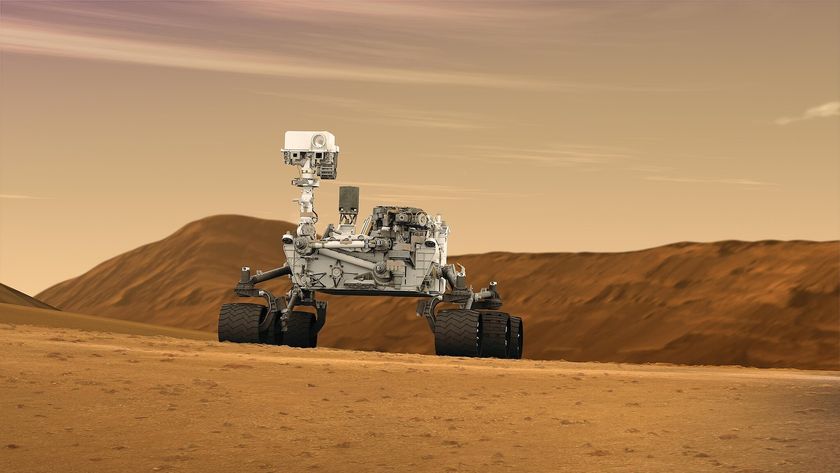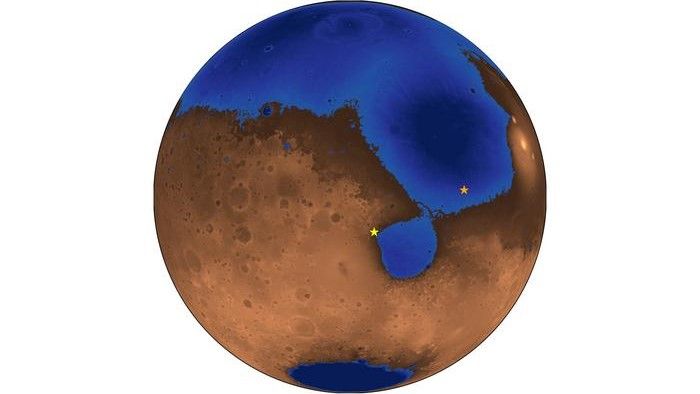Russia and Europe Team Up for Mars Missions

Russian and European space officials are teaming up to send spacecraft to look for signs of life on Mars.
The European Space Agency (ESA) and Roscosmos signed a deal on Thursday (March 14) to launch a Red Planet orbiter in 2016 and a rover in 2018 as part of the ExoMars program.
The deal outlines the two agencies' responsibilities for the missions. In 2016, ESA will provide the Trace Gas Orbiter to study the chemical composition of Mars' atmosphere as well as the entry, descent and landing demonstrator module. For the 2018 mission, the Europeans will provide the carrier and the ExoMars rover, which will look for signs of past and present Martian life, collecting samples from as deep as 6.5 feet (2 meters) beneath the surface of the Red Planet.
"It will be the first Mars rover able to drill to depths of 2 m, collecting samples that have been shielded from the harsh conditions of the surface, where radiation and oxidants can destroy organic materials," a statement from ESA read.
Roscosmos, meanwhile, will supply launchers for both missions and the 2018 descent module and surface platform. Both partners will provide scientific instruments and will work together on the scientific goals of the missions, according to ESA officials.
ESA director-general Jean-Jacques Dordain called Thursday's deal a "momentous occasion" for the ExoMars program after meeting with the head of Roscosmos, Vladimir Popovkin, at the ESA headquarters in Paris. Dordain said in a statement that the agreement "will demonstrate the competitiveness of European industry, be important for preparing a solid participation of ESA in future international exploration missions and address the key question of whether life ever arose on Mars."
NASA pulled out of the ExoMars program last year, but ESA said the U.S. space agency will contribute some communications software and engineering support for the missions.
Sign up for the Live Science daily newsletter now
Get the world’s most fascinating discoveries delivered straight to your inbox.
This story was provided by SPACE.com, sister site to Live Science. Follow SPACE.com on Twitter @Spacedotcom. We're also on Facebook and Google+.













